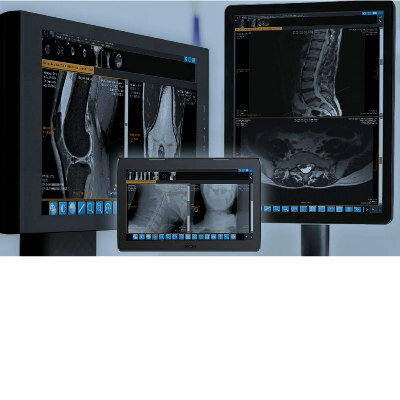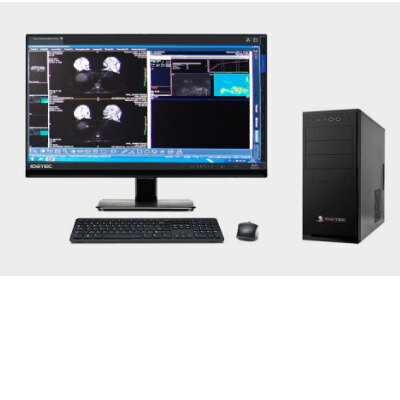MRI Provides Insights into Genetic Properties of Brain Tumors
By MedImaging staff writers
Posted on 28 Apr 2008
Researchers have demonstrated that magnetic resonance imaging (MRI) technology has the potential to noninvasively characterize tumors and determine which of them may be responsive to specific forms of treatment, based on their molecular characteristics. Posted on 28 Apr 2008
"This approach reveals that, using existing imaging techniques, we can identify the molecular properties of tumors,” said Michael Kuo, M.D., assistant professor of interventional radiology at the University of California, San Diego (UCSD) School of Medicine (La Jolla, USA). Dr. Kuo and colleagues studied more than 2000 genes that had previously been shown to have altered expression in Glioblastoma multiforme (GBM) tumors. They then mapped the correlations between gene expression and MRI features.
The researchers also identified characteristic imaging features associated with overall survival of patients with GBM, the most common and deadly type of primary brain tumor. Their study was published on-line by the Proceedings of the [U.S.] National Academy of Science (PNAS) on March 24, 2008.
The researchers found five distinct MRI features that were considerably linked with specific gene expression patterns. For example, one specific characteristic seen in some images is linked with proliferation of the tumor, and another with growth and formation of new blood vessels within the tumor both of which are susceptible to treatment with specific drugs.
These physiologic alterations seen in the images are caused by genetic programs, or patterns of gene activation within the tumor cells. Some of these programs are greatly associated with drug targets, so when they are detected, they could indicate which patients would respond to a specific anticancer therapy, according to the researchers.
"For the first time, we have shown that the activity of specific molecular programs in these tumors can be determined based on MRI scans alone,” said Dr. Kuo. "We were also able to link the MRI with a group of genes that appear to be involved in tumor cell invasion; a phenotype associated with a reduced rate of patient survival.”
Laboratory research that relies on tissue samples typically used to diagnose and guide treatment for GBM. However, the biologic activity shown may depend on the part of the tumor from which the tissue sample is obtained. The researchers have shown that MRI could be used to identify differences in gene expression programs within the same tumor.
"Gene expression results in the production of proteins, which largely determine a tumor's characteristics and behavior. This noninvasive MRI method could, for example, detect which part of a tumor expresses genes related to blood vessel formation and growth or tumor cell invasion,” stated Dr. Kuo. "Understanding the genetic activity could prove to be a very strong predictor of survival in patients, and help explain why some patients have better outcomes than others.”
Dr. Kuo also led a study, published in the journal Nature Biotechnology in May 2007, correlating CT images of cancerous tissue with gene expression patterns in liver tumors. "In the new study, we were able to take a different imaging technology, MRI, and apply it to a totally different tumor type,” he said, noting that these studies provide promising new avenues for noninvasive diagnoses and classification of cancer.
Related Links:
University of California, San Diego School of Medicine














